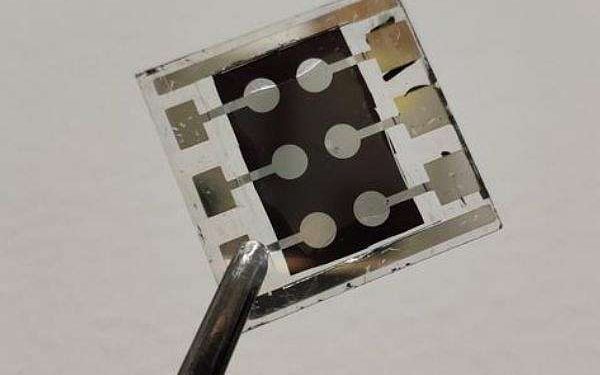New defect passivation strategy enhances efficiency and stability of perovskite solar cells
by Riko Seibo
Tokyo, Japan (SPX) Sep 15, 2024
Solar energy continues to be a critical component in reducing reliance on fossil fuels and transitioning to cleaner energy sources. Over time, solar cells have seen substantial advancements, making them increasingly efficient at harnessing renewable energy.
Metal-halide perovskite has emerged as a key material for solar cells due to its impressive optoelectronic properties, which allow it to effectively convert sunlight into energy.
One of the leading materials for creating high power conversion efficiency (PCE) in perovskite solar cells (PSCs) is polycrystalline formamidinium lead iodide (FAPbI3), known for its narrow energy band gap. However, despite its excellent properties, polycrystalline perovskites like FAPbI3 suffer from defects in their crystal structure. These imperfections affect their structural stability and energy conversion abilities, hindering their overall performance.
In response to this challenge, a research team led by Professor Hobeom Kim from the Gwangju Institute of Science and Technology (GIST) has developed an innovative defect passivation strategy aimed at significantly reducing these defects and improving both the efficiency and stability of perovskite solar cells. Their study, published on 04 July 2024 in ‘Nature Communications’, introduced a hexagonal polytype (6H) perovskite into the cubic polytype (3C) FAPbI3. This development led to a significant improvement in PCE compared to other variants.
“A typical approach so far has been to introduce an external chemical reagent to deal with the defect problem. However, bringing in external reagents could directly impact the crystalline quality of the perovskite during crystal growth, so our work does not rely on such stabilizers. Instead, we employ a chemically identical polytype of perovskite, 6H polytype containing a corner-sharing component that effectively suppresses the formation of defects in perovskite,” explains Prof. Kim.
The team integrated the 6H perovskite into FAPbI3 using an excess of lead iodide and methylammonium chloride. This process created a component that interacted with the primary defect site of the cubic polytype (3C) FAPbI3, enhancing its structural integrity and carrier dynamics. The result was an ultralong carrier lifetime of over 18 microseconds and PSCs with a PCE of 24.13%. The module achieved a PCE of 21.92%, with a certified efficiency of 21.44%, along with long-term operational stability.
The researchers suggested that the combination of the 3C and 6H polytypes could be the optimal configuration for a polycrystalline perovskite film. This discovery paves the way for further advancements in PSC technology, making it more viable for both personal and commercial applications such as rooftop solar panels, wearable devices, and portable chargers.
“Perovskite solar cells offer a transformative solution for achieving carbon neutrality and addressing global warming. Their efficiency, versatility, and reduced environmental impact make them an essential component in the transition to a sustainable future,” concluded Prof. Kim.
Research Report:Shallow-level defect passivation by 6H perovskite polytype for highly efficient and stable perovskite solar cells
Related Links
Gwangju Institute of Science and Technology
All About Solar Energy at SolarDaily.com



















